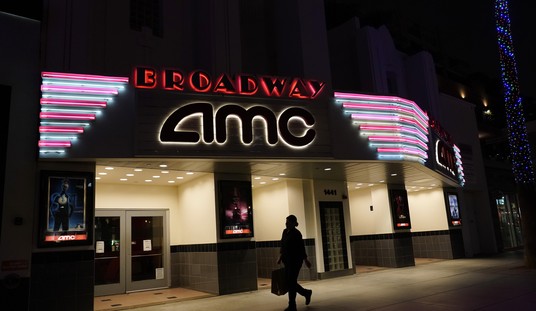As the so-called “supercommittee” on deficit reduction admits defeat later today, the rush is on to pin the blame on the donkey … or the elephant … or anything other than the exercise itself. Committee members flooded the zone yesterday in attempting to set the blame-game narrative. Jon Kyl blamed Democrats:
On NBC’s “Meet the Press,” Sen. Jon Kyl (R-Ariz.) blamed the committee’s failure on Democratic reluctance to cut into popular programs such as Social Security and Medicare. “Our Democratic friends were never able to do the entitlement reforms,” Kyl said, arguing that Democrats were the roadblock to a deal. “They weren’t going to do anything without raising taxes.”
John Kerry blamed Republicans:
Calling Kyl’s remarks “patently not true,” Sen. John F. Kerry (D-Mass.) accused Republicans of blocking the committee’s work by demanding an extension of George W. Bush-era tax cuts and refusing to consider significant tax increases on wealthier people. “We didn’t come here to do another tax cut to the wealthiest people while we’re [asking] fixed-income seniors to ante up more, people on Medicaid who are poor to ante up more,” he said.
Both Kerry and Patty Murray blamed … Grover Norquist?
On Sunday, Democratic supercommittee co-chairman Sen. Patty Murray (D-Wash.) said GOP members were too “enthralled” by their pledge to Norquist to negotiate in good faith.
On NBC’s Meet the Press, supercommittee member Sen. John Kerry (D-Mass.) blasted Norquist’s pledge. “I hear about this pledge – a pledge to a lobbyist that gets in the way of us living up to that sacrifice,” he said. “I took a pledge. My pledge is to the Constitution of the United States.”
Kyl returned the volley, blaming Barack Obama and claiming that Democratic panel members were simply shilling for Obama’s latest stimulus plan:
“If you look at the Democrats’ position it was `We have to raise taxes. We have to pass this jobs bill, which is another almost half-trillion dollars. And we’re not excited about entitlement reform,'” countered Republican Jon Kyl of Arizona on NBC’s “Meet the Press.”
Kyl wasn’t the only one blaming Obama. So did Joe Manchin — although not one of the Democratic members of the panel:
So what happens now? Automatic cuts take place that will eat into defense and domestic programs:
Failure by the panel would trigger about $1 trillion over nine years in automatic across-the-board spending cuts to a wide range of domestic programs and the Pentagon budget, starting in 2013, according to the Congressional Budget Office. This action, called a “sequester,” would also generate $169 billion in savings from lower interest costs on the national debt.
Except … they probably won’t. As my friend John Hinderaker pointed out last night, the agreement that formed the supercommittee in the first place has no binding effect on future Congresses:
My own view is that there is no reason to take seriously any statute that purports to tell us how money will be spent in 2022; or any time after the coming fiscal year. No Congress can bind future Congresses, and history tells us that such long term spending measures are meaningless. Five or ten years from now, Congress will spend whatever it votes to spend, wherever it votes to spend it, regardless of what the debt ceiling deal says. Have you ever dusted off a ten-year-old budget and compared it to actual current spending? It is an interesting exercise: there is no relationship whatsoever. There is nothing deader than last year’s budget.
In this case, concern about the future implications of the Supercommittee’s failure is especially silly, since the supposedly mandatory cuts don’t even begin until 2013. The whole thing, in my view, is a bluff. Republicans shouldn’t take the bait.
The real cause of the failure of the supercommittee was the idea that a supercommittee would act any differently than the Congress at large. Instead of using the normal process of having each chamber pass their own bills and using a conference committee to reconcile them, the debt-ceiling deal assumed that a dozen eminences grises could hand down a solution from on high that would significantly depart from the months and years of debate that had already taken place over the debt and deficit problem. The members of this committee were a part of that debate, which means they took the same issues into their chamber that everyone else had to handle outside of it.
Instead of using the proper procedure, we’ve just wasted three months in pursuit of a Deus ex machina rescue that was never going to materialize. While that’s bad news in the short run, it’s probably good news in the long run. Anyone proposing blue-ribbon supercommittees in the future will be laughed out of town — which is what should have happened the first time.”
Update: I incorrectly stated that Manchin was on the supercommittee. He was not, and I have corrected the text above. Thanks to Greg Dolan on Twitter for the correction.








Join the conversation as a VIP Member